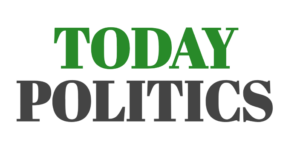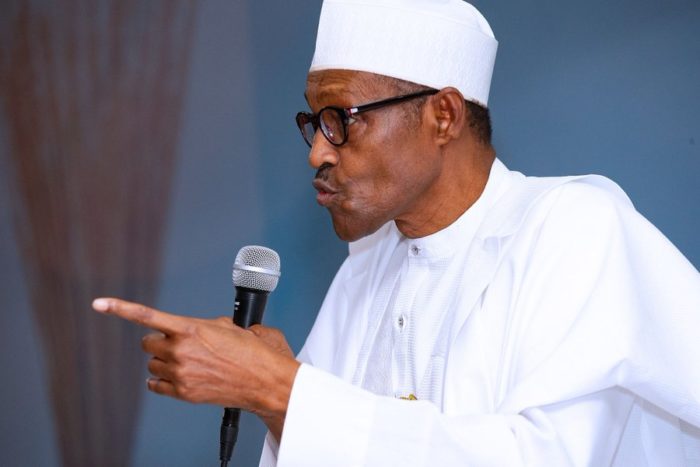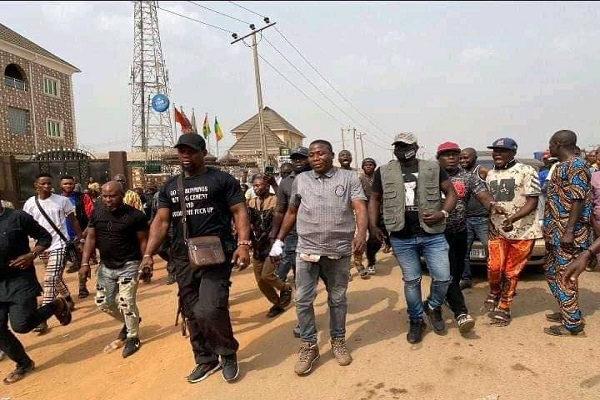President Muhammadu Buhari is going legendary for passing blames instead of taking responsibility while at the helm of affairs.
Democratically elected president in 2015, he has refused to admit or blame himself for any of the country’s woes but quick to take credits when the reverse is the case.
TODAY POLITICS will be listing down institutions, individuals and others that have been blamed by the present administration re-elected last year for another term of four years.
PDP: Before taking oath of office, the then president-elect on May 11, 2015 began his blame game on the Peoples Democratic Party (PDP), which took over in 1999, for the collapse of the Nigeria Airways, Nigeria Railways, and the Nigeria National Shipping Line, despite the afromentioned collapsing under military regimes. He made the blamed while hosting a delegation of the Northern Elders Forum (NEF), led by second republic minister, Maitama Sule.
On April 5, 2016, he kick started and has consistently blamed the PDP for the economic meltdown, saying it wasted the resources of the nation which ought to have been invested in infrastructures, economy and security. On September 14 2016, the PDP, in its first time, asked him to resign if he is unable discharge his duties. It has continued to make that call each time the president blames others.
GOODLUCK JONATHAN: After the president took over in May 27, 2015, he refused to appoint ministers until after six months. While he told Nigerians that he was searching for competent hands, the president on November 17 2025, barely a week after forming his cabinet, blamed his predecessor, Goodluck Jonathan, for the delay in appointing ministers.
Represented by Lai Mohammed, Information Minister, he said the ill preparedness of the former president to hand over power despite stepping down on May 27, caused the delay.
On May 4, 2018, Jonathan was also blamed for neglecting the health sector while he held sway between 2010 and 2015.
PETROLEUM STAKEHOLDERS: While presenting the 2016 budget to the National Assembly on December 22, President Buhari blames the stakeholders for the fuel scarcity bedeviling the nation at the time. According to him the scarcity was caused by the unwilling attitudes of theirs to embrace change.
MTN: On March 8, 2016, the present administration blamed MTN for the increasing Boko Haram attacks. At a joint press conference with South African President Jacob Zuma, the Nigerian leader accused the giant telecommunication network of aiding the terrorists by refusing to block all unregistered lines.
Earlier this year, Isa Pantami, Communication, Minister, unveiled plans to limit the number of sim cards an individual is expected to own, the policy earned him a warning from the terrorist group.
CLERICS: On December 4, 2017, the president through his aide, Femi Adesina, blamed Muslim clerics over their inability to tame the activities of insurgents whose insidious preachings continue to attract members into their fold.
GADAFFI: The late military dictator in Libya got his own share of the blame on April 4, 2018. Buhari attributed the alarming dimension the attacks in the North Central region of the country to Muammar Gaddafi. He exonerated herdsmen, who are mostly from the Fulani extraction which he hails from, of being behind the farmers and herders clashes mostly occurring in the area.
On September 25 of same year, and January 9, 2019, he reinterated his position that terrorism and insurgency in the Sahel region and Lake Chad Basin are fuelled by local runaway fighters from Iraq and Syria and arms from the disintegration of Libya.
POLITICS: On November 18, 2018, the seemingly dirty game in Nigeria has been blamed for the continued existence of Boko Haram terrorists. “It is common knowledge that though we require substantial military input in combating an insurgency, its root cause is inherently political in nature,” the president said while delivering a keynote address at the maiden Nigerian Air Force International Air Power Seminar, with the theme “Air Power in Irregular Warfare: A Framework for Understanding and Responding.”
NATIONAL ASSEMBLY: The legislative arm of government is not left out, especially the past 8th Senate described as a clog in the wheel of progress by the Buhari administration. The president is in harmony with the leadership of the present 9th National Assembly whom he helped in emerging. His requests to the lawmaking arm have never been turned down even if Nigerians are opposed to it. This has earned them the sobriquet, “Rubber Stamp” by Nigerians.
OLUSEGUN OBASANJO: At the buildup to the 2019 general election, Buhari blamed the former president for the rot in the electricity sector and promised to revisit it if re-elected, its been over a year since he began his second term and nothing in that direction has been heard again.
NIGERIANS: On May 27, 2019, while featuring on National Television Authority (NTA) Network Service, the president blamed citizens for rising unemployment and economic woes. He said Nigerians are the ones habouring criminals who kidnap expatriates and foreign multinationals, thereby sending bad signals to investors who are meant to build factories and employ millions of Nigerians.
ATIKU ABUBAKAR: The president, on February 16, 2019, blamed the presidential candidate of the opposition party for the postponement of the last year general election. The former vice president pushed back the blame.
TRADITIONAL RULERS: Traditional rulers, particularly those in the North were on April 10, 2019, knocked by the president for aiding criminals in their domain while promising to prosecute an indicted but high monarch found cupable. Like other vows made, it ended there.
POLITICIANS/OIL FIRMS: While signing the amended Deep Offshore Act into law on November 5, 2019, president Buhari blamed politicians and oil companies for conspiring to deny the country commensurate revenue from oil production and sales, particularly taxes over the years.
HEALTH WORKERS: On November 6, 2019, Buhari said that the poor attitude of health workers across the country is a major reason for the growing culture of Nigerians seeking medical care outside the country.
COMMUNITY LEADERS: The president on February 13, 2020, blamed the leaders of Borno communities for not doing enough in terms of cooperation with the military to end the Boko Haram insurgency.
CORONAVIRUS: The deadly virus has been blamed for rising criminal activities in Katsina, Kaduna and Borno. While addressing Nigerians on June 12, the president in his democracy day speech said insecurity in those areas were as a result of COVID-19 restrictions.
MIDDLEMEN: They are currently the last to being blamed for the rise in prices of commodities nationwide. A screenshot of a defunct national daily making rounds on the social media showed the president had previously blamed them in 1984 when he held sway as military head of state.












